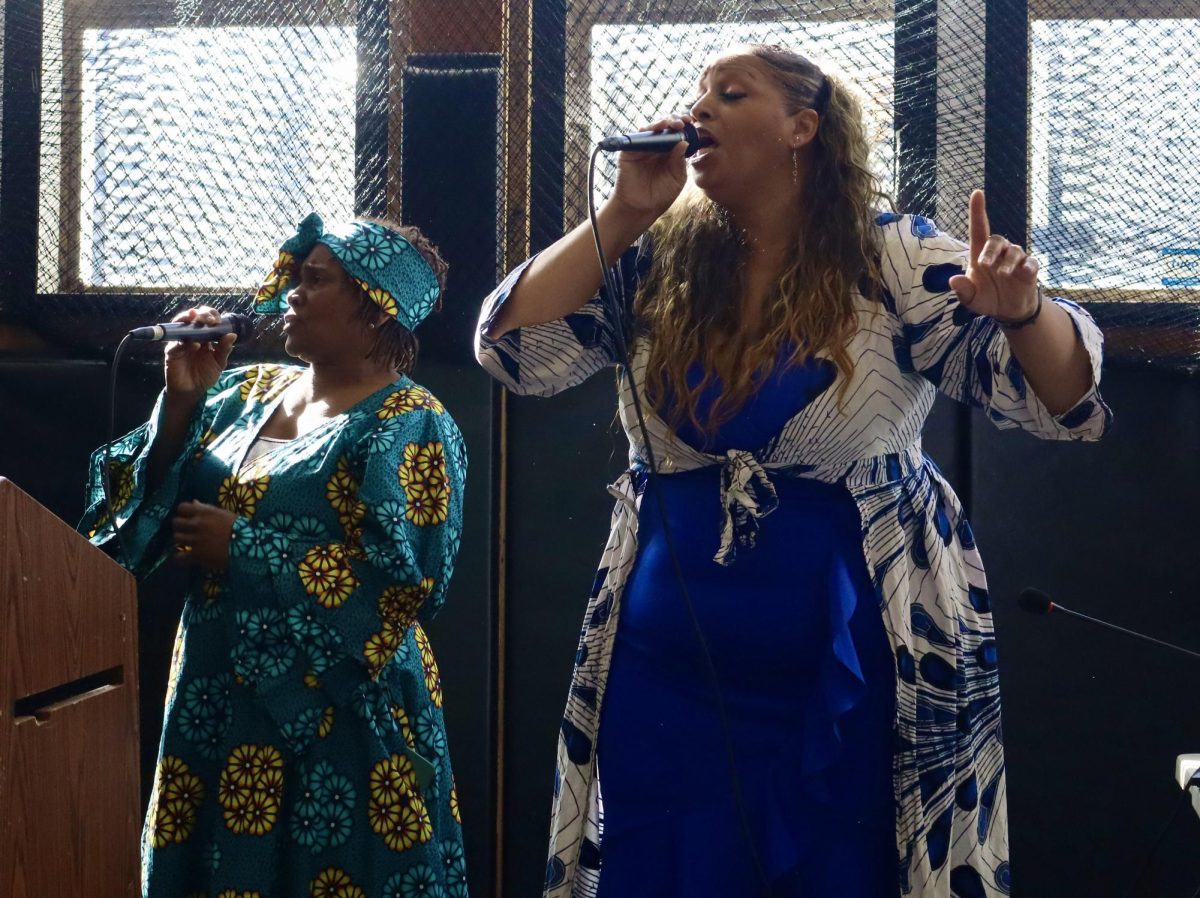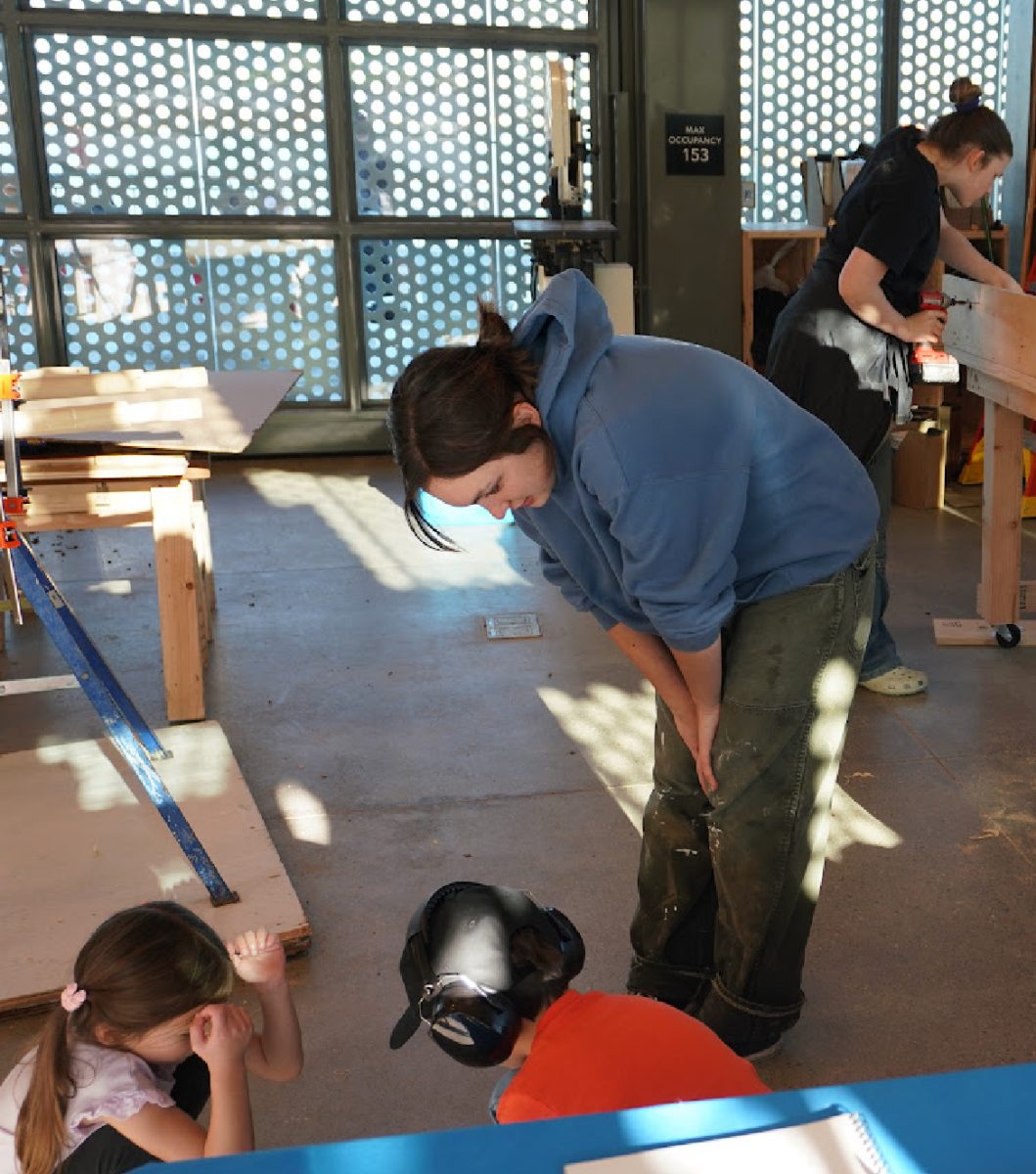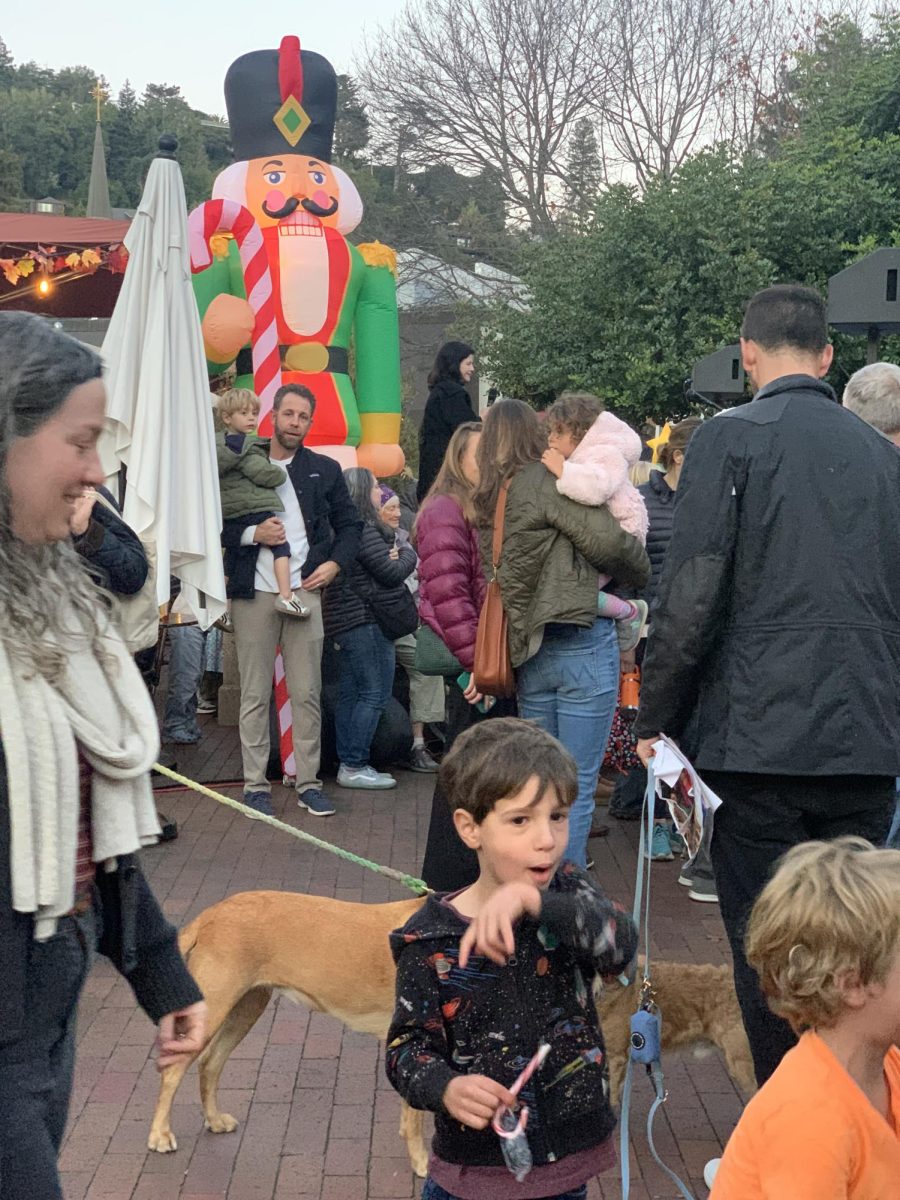The lunch period at Redwood on Friday, Jan. 21 was like none other. Proudly displayed in front of Redwood’s main entrance, the Environmental Action Club (EAC) hosted a sustainable clothing drive where pieces of clothing could be taken for free. Interested students gathered around the clothing-covered table, eager to find something to add to their wardrobe. EAC members sat with boxes of colorful clothes, watching their classmates participate in sustainable fashion.

The EAC is dedicated to educating the community on environmental issues and providing opportunities to alter unsustainable lifestyles. The clothing drive was designed to maximize the wear of one article of clothing by reusing the Redwood community’s old clothes. Students were asked to donate any clothing that was no longer being used. During the lunch period, everyone was welcome to exchange, donate or take clothes.
Copresidents senior Natalie Oh and junior Chrissy Teodorodecided to host the drive to discourage students from shopping fast fashion, an environmentally unfriendly method of buying cheap clothes. After years of sticking to clean-ups and habitation restoration projects, Oh and Teodoro wanted to host an event that tackled a current trend of unsustainability with an accessible alternative.
“We are expanding to new ideas like thrift days because fast fashion and sustainable shopping are large issues for our planet. [Fast fashion is] both cultural and environmental,” Oh said.
Fast fashion is a commonly practiced method of shopping due to its lower prices and accessibility. Teodoro noticed that many classmates understood the implications of their habits but did not know

a cheap alternative. The clothing drive gave students a way to easily engage in sustainable shopping.
“If a student was looking for a particular clothing item and was about to contribute to fast fashion, they didn’t have to do that if they found something they liked at the event,” Teodoro said.
Providing cheap alternatives to expensive brands, fast fashion corporations are an irresistible option for many shoppers who hope to spend less. However, cheap prices come at a great cost.
“Fast fashion is just one of the many issues that we focus on in our club. It contributes to the increasing speed that climate change is hitting us [at] and causes a lot of waste,” Teodoro said.
Junior and EAC club member Stella Wiener joined the club to develop her passion for environmentalism. Climate change, in particular, has been a large motivation for Wiener to participate in EAC. Helping host the clothing drive gave her a platform to educate others on the importance of sustainable shopping.

“Saving the environment should be important to everyone because it affects everyone. [Climate change] is scary and I want to do something to change that,” Wiener said.
This semester, the club plans to watch documentaries regarding climate change to educate students about the harms of unsustainability. Additionally, the club will continue its beach and park clean-ups to reduce waste. The EAC meets weekly on Wednesdays in room 211.






